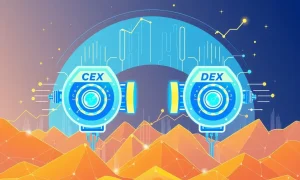Vietnam’s blockchain ecosystem presents unprecedented opportunities for forward-thinking crypto investors seeking early-mover advantages in Southeast Asia’s rapidly evolving digital asset landscape. The country’s progressive regulatory framework and massive adoption rates create a perfect storm for strategic investment positioning.
Vietnam Blockchain Ecosystem Regulatory Breakthrough
The 2026 Digital Technology Industry Law fundamentally transforms Vietnam’s blockchain ecosystem. This legislation categorizes digital assets as legal property while implementing robust compliance measures. Consequently, investors gain clarity and protection previously unavailable in many emerging markets.
Tax Advantages in Vietnam Blockchain Ecosystem
Vietnam’s blockchain ecosystem features a competitive 0.1% transaction tax structure. This approach contrasts sharply with neighboring countries’ heavier tax burdens. For example:
- India: 30% capital gains tax on crypto
- Brazil: 15-22.5% progressive capital gains tax
- Indonesia: 0.21% transaction tax rate
This tax efficiency significantly enhances investment returns within Vietnam’s blockchain ecosystem.
Infrastructure Development Momentum
Public-private partnerships drive Vietnam’s blockchain ecosystem expansion. Major collaborations include KuCoin, VBA, and 1Matrix developing:
- Pilot trading platforms
- Digital identity solutions
- Secure payment infrastructure
The National Strategy on Blockchain targets $925 million market value by 2029, demonstrating serious government commitment.
Demographic and Adoption Advantages
Vietnam’s blockchain ecosystem benefits from extraordinary user adoption rates. With 21.2 million crypto users in 2025, the country demonstrates remarkable digital asset acceptance. This tech-savvy population provides:
- Strong retail participation base
- High digital literacy rates
- Growing middle-class investment capacity
Comparative Regional Leadership
Vietnam’s blockchain ecosystem outperforms regional competitors in regulatory clarity and infrastructure development. While other markets struggle with fragmented frameworks, Vietnam offers:
- Comprehensive legal foundation
- State-backed stablecoin pilots
- FDI incentives including tax exemptions
Risk Management Framework
The Vietnam blockchain ecosystem addresses potential challenges through measured approaches. Regulatory sandboxes test AML and KYC protocols while the government maintains restrictions on crypto payments. Investors should focus on projects aligning with state priorities like:
- Blockchain-based remittance platforms
- Decentralized identity solutions
- Financial inclusion initiatives
Future Outlook and Opportunities
Vietnam’s blockchain ecosystem positions itself as a Southeast Asian hub for digital asset innovation. The combination of regulatory foresight, infrastructure investment, and demographic advantages creates compelling opportunities for early-stage investors. As the 2026 legislation takes effect, Vietnam will likely become a global benchmark for emerging market blockchain development.
Frequently Asked Questions
Is cryptocurrency legal in Vietnam?
Yes, the 2026 Digital Technology Industry Law recognizes crypto assets as legal property with specific regulatory frameworks governing their use and trading.
What taxes apply to crypto transactions in Vietnam?
Vietnam implements a 0.1% transaction tax on crypto assets, significantly lower than many other Asian markets, making it attractive for investors.
How many crypto users does Vietnam have?
Vietnam has approximately 21.2 million crypto users in 2025, with projections indicating growth to 21.71 million by 2026, demonstrating strong adoption rates.
What makes Vietnam’s blockchain ecosystem unique?
Vietnam offers a rare combination of regulatory clarity, tax advantages, government support, and high adoption rates that create a favorable environment for blockchain investment.
Are there any restrictions on crypto payments in Vietnam?
Yes, the State Bank of Vietnam restricts using cryptocurrency as a payment method, though trading and investment activities operate within regulated frameworks.
What sectors benefit most from Vietnam’s blockchain development?
Finance, logistics, and public services represent primary sectors targeted for blockchain integration, with significant government and private investment flowing into these areas.








